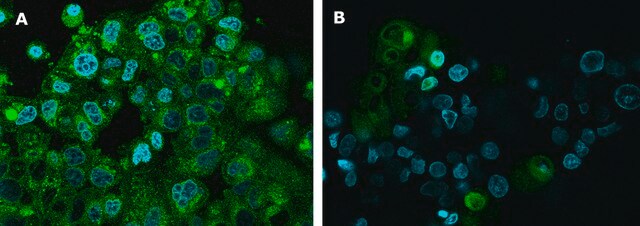SCT248
BioTracker™ Putrescine Polyamine Green Fluorescent Live Cell Probe
Human
Synonym(s):
BioTracker™ Clickable Polyamine Putrescine Live Cell Probe, clickable polyamine probe, clickable putrescine probe, live cell probe, polyamine probe, polyamine transport system probe, putrescine probe
About This Item
Recommended Products
product name
BioTracker™ Putrescine Polyamine Green Fluorescent Live Cell Probe,
biological source
human
Quality Level
packaging
vial of 500 μg
manufacturer/tradename
Millipore
technique(s)
cell culture | mammalian: suitable
shipped in
dry ice
storage temp.
−20°C
General description
Features and Benefits
Target description
Physical form
Storage and Stability
Other Notes
Legal Information
Disclaimer
Storage Class
11 - Combustible Solids
wgk_germany
WGK 3
flash_point_f
Not applicable
flash_point_c
Not applicable
Certificates of Analysis (COA)
Search for Certificates of Analysis (COA) by entering the products Lot/Batch Number. Lot and Batch Numbers can be found on a product’s label following the words ‘Lot’ or ‘Batch’.
Already Own This Product?
Find documentation for the products that you have recently purchased in the Document Library.
Our team of scientists has experience in all areas of research including Life Science, Material Science, Chemical Synthesis, Chromatography, Analytical and many others.
Contact Technical Service







